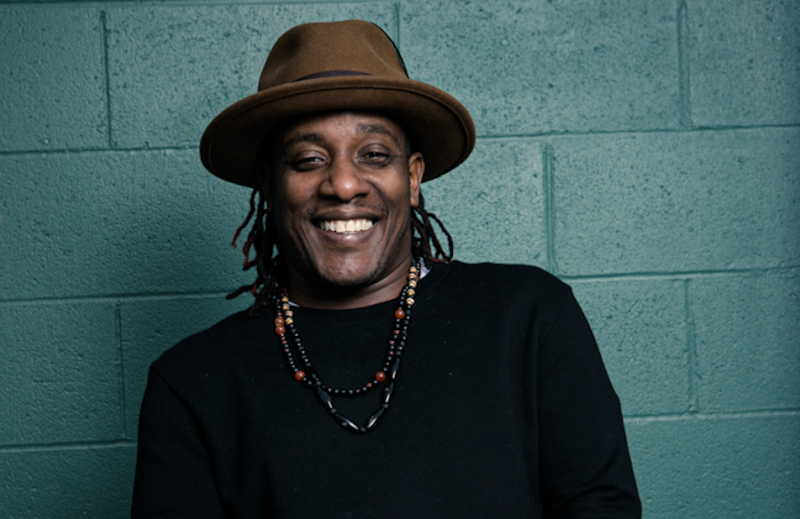Just over a decade ago, Chris Riggins’ friends challenged him to do an opening set for Dave Chappelle at the New Parish in Oakland. That evening launched Riggins’ career in comedy.
By this point Riggins has performed on stages across the Bay Area and beyond. And as his career was in mid-stride — COVID-19 hit. Now Riggins is adjusting to a world where comedy performances, like many forms of art, are happening online.
While live stand-up comedy is all about the interaction between the comedian and the audience, online comedy causes Riggins to rely on written comments, muted laughs and Facebook emojis from attendees to show that they’re having a good time.
Riggins, a South Berkeley native who meshes political banter, commentary on the marijuana industry and “dick pic” jokes into his routines, says that the transition to performing fully online wasn’t easy, but as a pro, he’s learned to adapt.
This week on Rightnowish, Chris Riggins takes you to the virtual comedy club.
Below are lightly edited excerpts of my conversation with Chris Riggins.
Pen: Is it too soon to quote crack jokes about Covid?
Chris: No way. That’s all we’ve been doing, I’m at the point now where I’m writing jokes for after Covid because I’m like, OK, these jokes are gonna be relevant until we all get out of it. And then maybe for a month after. You know it’s funny like I’m running into comedians who are scared to do these shows and they’re like, “I don’t want to do this show. It doesn’t feel like comedy.” I’m like, well, maybe you’re not a comedian? I don’t know. (Laughs)
Pen: I know a large part of comedy interaction with the crowd. Since you don’t have that crowd to interact with, how do you do comedy?
Chris: When I’m on Facebook Live or Instagram Live, I get the computer or the phone real close to me and I just read the comments, because people are responding. And then when they hear you respond, then they’re like, he’s responding to me! And then they’re sharing it with other people. It’s more personable.
Zoom was a whole other level because I could see people’s faces. So I was like roasting people in their house. Like, I had one dude get up and show me his house so I could roast his house. I was like, walk around your house so I could roast your house, you know? It was fun. And I think everybody enjoyed it.
Pen: In doing these online performances where you don’t have the crowd in front of you. How do you know that your jokes are even landing with them?
Chris: When you’re watching, emojis are going up and you know, the heart’s going on, the laughter is going up. So you can see that. And then on Zoom, you can hear the people, they actually can turn their mics on. It’s the best time to be quarantined because we have the most technology just to communicate.
The future of anything is adaptation. I mean, like I can admit, I was one of those standup comedians that was like, “I don’t like these Instagram comedians, I don’t like these YouTube guys.” Just because they’re editing their jokes. They got 20 takes and they’re editing it, where I’m going on stage and I got one take to say this joke right in front of a crowd of 2000 people or it’s gonna be bad. You know.
[[Coronavirus]] is making you adapt your material because the material has to be funny now. It’s weeding out the people who are making it on energy. Now, it’s like, oh, are you funny? Because I can’t say nothing back to you. So you better hope I’m laughing.

Rightnowish is an arts and culture podcast produced at KQED. Listen to it wherever you get your podcasts or click the play button at the top of this page and subscribe to the show on NPR One, Spotify, Apple Podcasts, TuneIn, Stitcher or wherever you get your podcasts.


